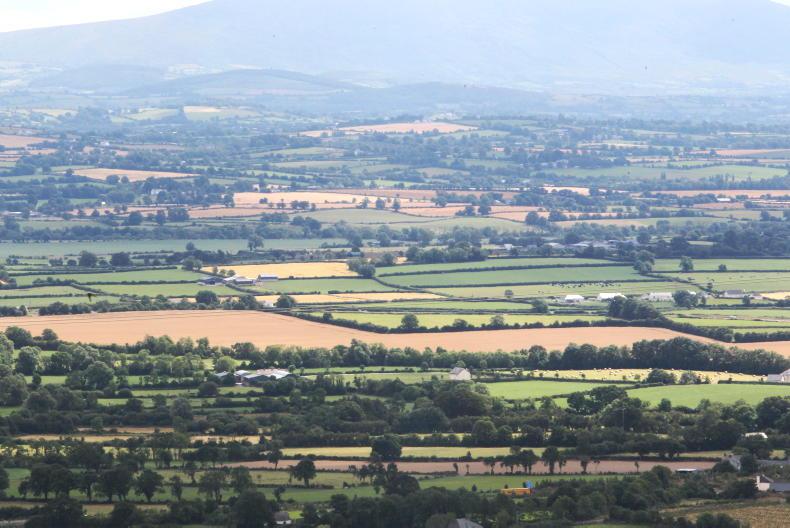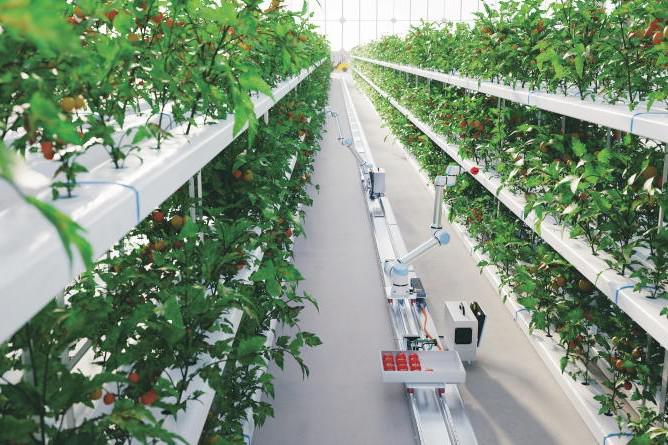Each week in Irish Country Living, we highlight educational initiatives across Ireland that aim to increase young people’s awareness and understanding of agriculture.
This week, we turn our focus to international efforts, exploring projects on the ground in underdeveloped regions that are creating educational programmes to inspire rural youth and cultivate an appreciation for agriculture.
On 30 December, Minister Charlie McConalogue announced a landmark International Development Assistance funding package of €39.86 million for 2024. This includes an advance payment of €35 million to the UN World Food Programme (WFP) as part of a new €105 million partnership agreement spanning 2025-2027.
Additionally, €4.863 million has been allocated to Food and Agriculture Organization (FAO) programmes like the AgXFair that took place at this years World food Forum.
Irish Country Living attended the most recent World Food Forum (WFF) which was held in October at the Food and Agriculture Organization of the United Nations (FAO) headquarters in Rome. It showcased the power of agri-food education as it focused on the critical role young people play in shaping the future of global agri-food systems.
We caught up with the five finalists who have created educational programmes aimed at fostering an appreciation and interest in agriculture amongst rural youths in their regions.
Colombia: rural incubator

Johan Sebastián Chávez Mosquera from Colombia at the AgX fair FAO. \FAO/Vincenzo Landi
In Colombia, only one in 20 rural youths obtain an academic degree and just 6% can work in the area they have studied.
“The concentrated violence results in many youths migrating. Although many have entrepreneurial ideas, 74% of youths do not have access to funding or education meaning their outlook is bleak. This results in them being drawn to illegal groups leading to lives of poverty and violence. To address these challenges, I founded Aloha in 2022,” says Johan Sebastián Chávez Mosquera.
The organisation allows young people to become social entrepreneurs instead of falling into crime or addiction.
“The rural incubator-building peace programme provides education in financial literacy and business planning through one-to-one mentoring.
“We facilitate personalised support to help young people create projects and build websites. We guide them towards funding, resources and opportunities,” says Johan.
One of the main ideas of the programme is the promotion of sustainable agricultural practices.
“We mentor young entrepreneurs in the implementation of agricultural practices that improve production and environmental sustainability. We encourage the adoption of innovative technologies and methods that increase the efficiency and quality of agricultural products,” he says.
Nigeria: CFF agro-schooling

Israel Oyeyemi, team leader of the CFF agro-schooling project speaking to a group of students at Abadina Grammar School, Ibadan.
The CFF agro-schooling project in Nigeria was developed with the vision of fostering a passion for agriculture while educating students on food production and modern agricultural techniques.
“The concept came about because of the problem we have in our community where students don’t want anything to do with agriculture, they don’t understand its value.
"We have been enlightening secondary school students on the sustainable and modern ways of producing food. We are encouraging them to produce their food through environmentally friendly ways which helps with our food security,” says Israel Oyeyemi, team leader.
The overall aim is to solve problems of youth unemployment, food insecurity, poverty and environmental degradation.
“According to the United Nations, 26.4 million people are food insecure in Nigeria, while there is a problem with poverty and environmental degradation,” says Israel.
The programme develops communication skills as well as agricultural knowledge. They have 80 team members at the moment and have worked with over 3,000 students in their community.
Bangladesh: empowering
marginalised rural women
Initially, Imran Hamid created a YouTube channel in Bangla to simplify the transfer of livestock farming knowledge, and this grew to 20,000 subscribers.
At the end of 2023, Imran created an educational programme empowering marginalised rural women by offering free farming education in dairy and cattle production.
“We are trying to support women because, in Bangladesh, 60% of livestock production comes from the rural communities and small-scale farmers.
“If we don’t give them the information, they will not grow, and as a result, the livestock sector will be monopolised. There are big organisations producing livestock and prices will go beyond affordability if we don’t maintain small-scale production,” says Imran Hamid.
In Bangladesh, women traditionally do work in the household. The project aims to change this and encourage them to start livestock production or a small farm enterprise alongside the household.
Starting with just one or two animals, women can have their own income giving them freedom and independence.
“So far we have trained over 220 people, this is not about livestock production but improving the confidence of young women and girls to increase the gender balance in agriculture,” says Imran.
Spain: The Food Clans

Franceso Reche with his project, The Food Clans.
Francesco Reche has created an educational game called The Food Clans aimed at tackling obesity amongst young people.
Currently, more than 160 million children suffer from obesity across the globe, it is estimated that in 11 years from now, this number will be 400 million. Along with this, obesity is linked to causing over 200 diseases.
“These are not just statistics; they are the lives of many people around us that we care about and I think it’s time we take innovative solutions to turn the tide. The Food Clans is a game that combines fun and education in three ways aiming to catalyse systemic change from the ground up,” says Francesco.
In the game, children become food guardians and embark on quests to rescue traditional recipes and capture villains representing unhealthy choices. It is also an educational resource that integrates food facts, nutritional information and insights into different food cultures.
“This project can have far-reaching effects on society by addressing the routes and not just the consequences of obesity,” explains Francesco.
Northern Uganda: sustainable oyster mushroom production

Kasozi Evans James, founder of the sustainable oyster mushroom production project in Uganda.
Increased poverty caused by the Kony War in the early 1990s in the Northern Uganda region has hindered access to education and resulted in increased rates of teenage pregnancies in the area.
According to the Uganda national action plan, the region faces a high level of stunted growth in children from zero to five years due to malnutrition and amenia [absence or suppression of normal menstruation].
The sustainable oyster mushroom production project was developed to teach mushroom production to young women, youth groups and less privileged families who face the challenge of poverty.
Kasozi Evans James is an undergraduate completing a Bachelor of Agriculture Science. He came up with the programme because he wanted to interlink science and agriculture to better the agri-food system. Along with this, Kasozi wanted to help improve the standard of living in his rural community by generating an income for those with limited land.
“I wanted to help people in the community to start an oyster mushroom businesses. There is a market for it, it doesn’t require a large amount of space and you have continuity of production throughout the year,” explains Kasozi.
Each week in Irish Country Living, we highlight educational initiatives across Ireland that aim to increase young people’s awareness and understanding of agriculture.
This week, we turn our focus to international efforts, exploring projects on the ground in underdeveloped regions that are creating educational programmes to inspire rural youth and cultivate an appreciation for agriculture.
On 30 December, Minister Charlie McConalogue announced a landmark International Development Assistance funding package of €39.86 million for 2024. This includes an advance payment of €35 million to the UN World Food Programme (WFP) as part of a new €105 million partnership agreement spanning 2025-2027.
Additionally, €4.863 million has been allocated to Food and Agriculture Organization (FAO) programmes like the AgXFair that took place at this years World food Forum.
Irish Country Living attended the most recent World Food Forum (WFF) which was held in October at the Food and Agriculture Organization of the United Nations (FAO) headquarters in Rome. It showcased the power of agri-food education as it focused on the critical role young people play in shaping the future of global agri-food systems.
We caught up with the five finalists who have created educational programmes aimed at fostering an appreciation and interest in agriculture amongst rural youths in their regions.
Colombia: rural incubator

Johan Sebastián Chávez Mosquera from Colombia at the AgX fair FAO. \FAO/Vincenzo Landi
In Colombia, only one in 20 rural youths obtain an academic degree and just 6% can work in the area they have studied.
“The concentrated violence results in many youths migrating. Although many have entrepreneurial ideas, 74% of youths do not have access to funding or education meaning their outlook is bleak. This results in them being drawn to illegal groups leading to lives of poverty and violence. To address these challenges, I founded Aloha in 2022,” says Johan Sebastián Chávez Mosquera.
The organisation allows young people to become social entrepreneurs instead of falling into crime or addiction.
“The rural incubator-building peace programme provides education in financial literacy and business planning through one-to-one mentoring.
“We facilitate personalised support to help young people create projects and build websites. We guide them towards funding, resources and opportunities,” says Johan.
One of the main ideas of the programme is the promotion of sustainable agricultural practices.
“We mentor young entrepreneurs in the implementation of agricultural practices that improve production and environmental sustainability. We encourage the adoption of innovative technologies and methods that increase the efficiency and quality of agricultural products,” he says.
Nigeria: CFF agro-schooling

Israel Oyeyemi, team leader of the CFF agro-schooling project speaking to a group of students at Abadina Grammar School, Ibadan.
The CFF agro-schooling project in Nigeria was developed with the vision of fostering a passion for agriculture while educating students on food production and modern agricultural techniques.
“The concept came about because of the problem we have in our community where students don’t want anything to do with agriculture, they don’t understand its value.
"We have been enlightening secondary school students on the sustainable and modern ways of producing food. We are encouraging them to produce their food through environmentally friendly ways which helps with our food security,” says Israel Oyeyemi, team leader.
The overall aim is to solve problems of youth unemployment, food insecurity, poverty and environmental degradation.
“According to the United Nations, 26.4 million people are food insecure in Nigeria, while there is a problem with poverty and environmental degradation,” says Israel.
The programme develops communication skills as well as agricultural knowledge. They have 80 team members at the moment and have worked with over 3,000 students in their community.
Bangladesh: empowering
marginalised rural women
Initially, Imran Hamid created a YouTube channel in Bangla to simplify the transfer of livestock farming knowledge, and this grew to 20,000 subscribers.
At the end of 2023, Imran created an educational programme empowering marginalised rural women by offering free farming education in dairy and cattle production.
“We are trying to support women because, in Bangladesh, 60% of livestock production comes from the rural communities and small-scale farmers.
“If we don’t give them the information, they will not grow, and as a result, the livestock sector will be monopolised. There are big organisations producing livestock and prices will go beyond affordability if we don’t maintain small-scale production,” says Imran Hamid.
In Bangladesh, women traditionally do work in the household. The project aims to change this and encourage them to start livestock production or a small farm enterprise alongside the household.
Starting with just one or two animals, women can have their own income giving them freedom and independence.
“So far we have trained over 220 people, this is not about livestock production but improving the confidence of young women and girls to increase the gender balance in agriculture,” says Imran.
Spain: The Food Clans

Franceso Reche with his project, The Food Clans.
Francesco Reche has created an educational game called The Food Clans aimed at tackling obesity amongst young people.
Currently, more than 160 million children suffer from obesity across the globe, it is estimated that in 11 years from now, this number will be 400 million. Along with this, obesity is linked to causing over 200 diseases.
“These are not just statistics; they are the lives of many people around us that we care about and I think it’s time we take innovative solutions to turn the tide. The Food Clans is a game that combines fun and education in three ways aiming to catalyse systemic change from the ground up,” says Francesco.
In the game, children become food guardians and embark on quests to rescue traditional recipes and capture villains representing unhealthy choices. It is also an educational resource that integrates food facts, nutritional information and insights into different food cultures.
“This project can have far-reaching effects on society by addressing the routes and not just the consequences of obesity,” explains Francesco.
Northern Uganda: sustainable oyster mushroom production

Kasozi Evans James, founder of the sustainable oyster mushroom production project in Uganda.
Increased poverty caused by the Kony War in the early 1990s in the Northern Uganda region has hindered access to education and resulted in increased rates of teenage pregnancies in the area.
According to the Uganda national action plan, the region faces a high level of stunted growth in children from zero to five years due to malnutrition and amenia [absence or suppression of normal menstruation].
The sustainable oyster mushroom production project was developed to teach mushroom production to young women, youth groups and less privileged families who face the challenge of poverty.
Kasozi Evans James is an undergraduate completing a Bachelor of Agriculture Science. He came up with the programme because he wanted to interlink science and agriculture to better the agri-food system. Along with this, Kasozi wanted to help improve the standard of living in his rural community by generating an income for those with limited land.
“I wanted to help people in the community to start an oyster mushroom businesses. There is a market for it, it doesn’t require a large amount of space and you have continuity of production throughout the year,” explains Kasozi.













SHARING OPTIONS